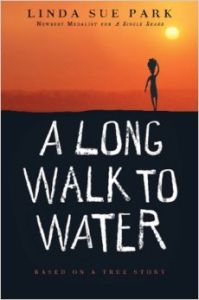By Dawn Miller
Those reading scores from back in October are suggestive, or at least I hope they are.
On the National Assessment of Educational Progress, eighth-grade reading scores went up by three points, a significant amount.
There is no certain cause anyone can point to. Unless the trend continues, we’ll all shrug it off as a blip. But maybe it’s not a blip. Maybe somebody’s hard work is paying off. Maybe this is evidence of a cultural change in schools.
There may be no way to quantify this, but I’ve been going into at least one school every week for more than two decades, and things seem different over the last six or eight years.
In short, it seems like there is more value on — and respect for — children spending time reading, for both fun and profit.
Back in 2001, when support for the test-and-penalize mentality of the federal No Child Left Behind law was on the rise, schools shifted their priorities as instructed. They ramped up for testing, putting more time and emphasis on preparing students to hit the required mark, at all costs.
Educators know reading skill is important for every other kind of success. But for some reason, too many schools and counties decided to focus on narrow definitions and measurements, particularly reading speed — not comprehension, mind you.
The starkest example of this folly comes from a Read Aloud colleague who was running a little book club half a dozen years ago. It was a special thing, a treat for the middle schoolers involved. They looked forward to it and were motivated to read “The Watsons Go to Birmingham” by Christopher Paul Curtis. All the students in this group stated their reading speed proudly.
And yet after they “read” the climax of the book, the kids came in for their next club meeting, and not one of them could share an event from the story to start the discussion. They were absolutely lost. They had read all the words, but saw nothing. I won’t ruin the book for you, but when prompted, the kids asked, “What explosion?”
For some time in the years leading up to this event, a number of my Read Aloud colleagues found themselves increasingly unwelcome in their schools. There were so many demands on the schedule and ugly consequences if scores didn’t rise enough, that principals and teachers could not justify having a professionally behaved volunteer come in once a week and simply read an enjoyable story for 20 or 30 minutes.
They didn’t have time for children to enjoy the literature they were being exposed to.
They didn’t have time to enjoy putting to use the skills they were drilling every day.
I’m happy to say this is what seems to have changed.
Since then, Read Aloud has been in its own rebuilding phase, re-establishing a presence in 29 counties. The state Department of Education launched its own efforts to encourage children and families to read together for fun. I hear the message bounce back to me through other organizations or in check-out lines.
So, I cannot help but wonder, is this year’s eighth-grade NAEP score quantifying something real and valuable?
Just four days before those scores were released, author Jacqueline Woodson came to the West Virginia Book Festival in Charleston, and among other things, said, “Children must be encouraged to read slowly. Making kids read fast is the opposite of making kids into writers.”
While most kids will not grow up like Woodson to become award-winning poets and novelists, we do want them all to grow up able to express themselves competently in writing – and to be able to read the documents germane to their own livelihood and citizenship.
Back at my school, where teachers have always made time for students to enjoy books, the fifth grade reached the point in Woodson’s memoir “Brown Girl Dreaming,” where she describes her Brooklyn teacher back in the 1970s not giving young Jacqueline time to settle the letters into words. “Read faster,” the teacher fussed. But faster is not better, the author makes clear in her book.
At this point, our teacher interjected a reminder to the class, something along the lines of, “See. What am I always telling you? You don’t have to read fast.”
We don’t even measure reading speed anymore, she added to me.
Dawn Miller, the Charleston Gazette’s editorial page editor, can be reached at dawn@wvgazettemail.com.
Reprinted with permission from the Charleston Gazette-Mail.
Dawn Miller is a Read Aloud West Virginia volunteer reader and advisory board member.



